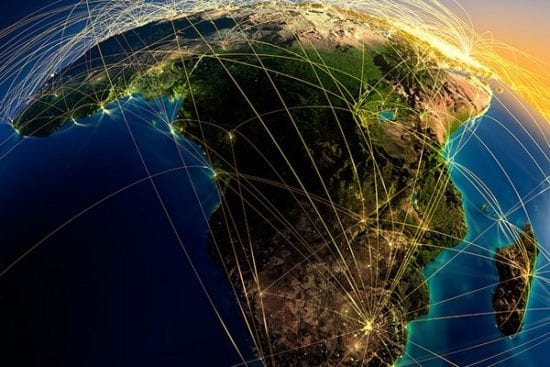In the Western world utilities are often taken for granted. The majority of citizens live in a house with water, electricity and gas automatically connected and monitored on meters; very few will even consider the prospect of life without what they see as basic necessities.
There is no starker contrast to the Western world’s approach to utilities than in Africa. 115 people in Africa die every hour from diseases linked to contaminated water, while 589 million habitants live without electricity.
However, mobile technology is already starting to change the shape of utilities across the continent, so much so, that other regions could learn from the IoT deployments which are already changing lives.
In this article Paul Marshall from Eseye, a leading global cellular machine-to-machine connectivity provider for Internet of Things devices, investigates the opportunities of mobile-enabled utility services world wide, and how Africa is a prime example of how connectivity is allowing them to be delivered in the most remote locations.
Unplugged
Accessing utilities in the Western world is relatively straight forward. For instance, if you want to connect a phone line to your home, you contact a local phone company, give them your address, bank details etc. and the provider runs a credit check on you and if you pass, connects you to the network.
Phone companies understand you have credit in place to pay for the service in advance, as you have an address and are associated with a bank, and have a measurable credit rating. However, if you are one of the millions of people across Africa who are ‘unbanked’ the process is not nearly as easy.
Without credit how do you show a provider it is worth building a phone line and connecting you to its service? How can you guarantee its investment in you and in your phone line is going to pay off?
More importantly, it is staggering to see how this system for phone connectivity is the same as issues faced when looking at essential infrastructures such as water, waste disposal, electricity, or any utility the Western world now takes for granted.
Forced to innovate
If this problem was faced in the UK, various organisations would compete to build roads, infrastructure or whatever was required to allow the service to be sold and delivered. However, across Africa , organisations don’t have this option. Instead they are forced to find alternative solutions to solve the problem and drive innovation as they do so.
Most are turning to the one universal infrastructure that exists across the world; the mobile network. As with the mobile expansion across Europe in the 90s, Africa saw the same expansion, giving the continent its only universal utility service. In fact more than double the population in sub-Saharan Africa has mobile phone access compared with access to paved roads.
Therefore businesses looking to deliver utilities in African countries are surpassing their Western world counterparts; maximising the mobile network to deliver innovative utility services to millions.
Come to the light side
One such business delivering utilities in innovative ways is M-KOPA. M-KOPA has provided light to more than 400,000 homes across Kenya, Tanzania and Uganda by offering solar-power home systems for low income and rural residents without electricity.
This is achieved by building mobile connectivity into its technology. This then allows customers to light their homes by paying for the device through mobile money transfers.
After finishing the payment plan, the customer owns the product and can then access more cost-effective financing for a range of products, including more lights, television sets, cooking stoves, smartphones, and water storage tanks.
Therefore by utilising the mobile network, M-KOPA is delivering services to ‘unbanked’ people; people who would have not had access to finance services.
Wider impact
M-KOPA isn’t the only business successfully innovating in Africa. EWaterPay in West Africa for example has developed a sustainable solution which allows local water distribution schemes to become self-sustaining. It’s a business model which also has the potential to be implemented on a wider scale across the continent. Mobile Money, NFC (Near Field Communications) Secure RFID tags and cellular communication all play a part by allowing secure financial transactions, the delivery of clean fresh water and trained local engineers paid to manage and maintain the system.
Innovations such as these, are allowing mobile connectivity to have a wider impact. By ensuring people have access to credit and services, organisations can open further access to infrastructure, increase job opportunities and deliver a boost to local and national economies.
Africa is therefore at the beginning of its own industrial revolution. A revolution that will not be driven by steam and coal; but by mobile and innovation.
The opinions expressed in this post belongs to the individual contributors and do not necessarily reflect the views of Information Security Buzz.



